#WOWWOMEN! Achenyo Idachaba, the brilliant founder of MitiMeth, took time out to speak with our team at W4 about her ground-breaking social business in Nigeria that turns environmental waste into home furnishings, positively impacting the environment and providing vulnerable women with employment opportunities!
What inspired you to become a social entrepreneur and to found MitiMeth in Nigeria?
I moved to Nigeria in 2009 to do sustainable development work and I started a consulting outfit, Greennovative Chain, to mitigate the negative impacts of climate change by recovering waste and creating utilisation opportunities. Later, MitiMeth became a tangible expression of the message that we were preaching at Greennovative Chain: clean up the environment and create sustainable livelihood options. We are a for-profit enterprise with a social mission, but back when we were launching I didn’t realise that what I was doing would fit the definition of a ‘social entrepreneur’.
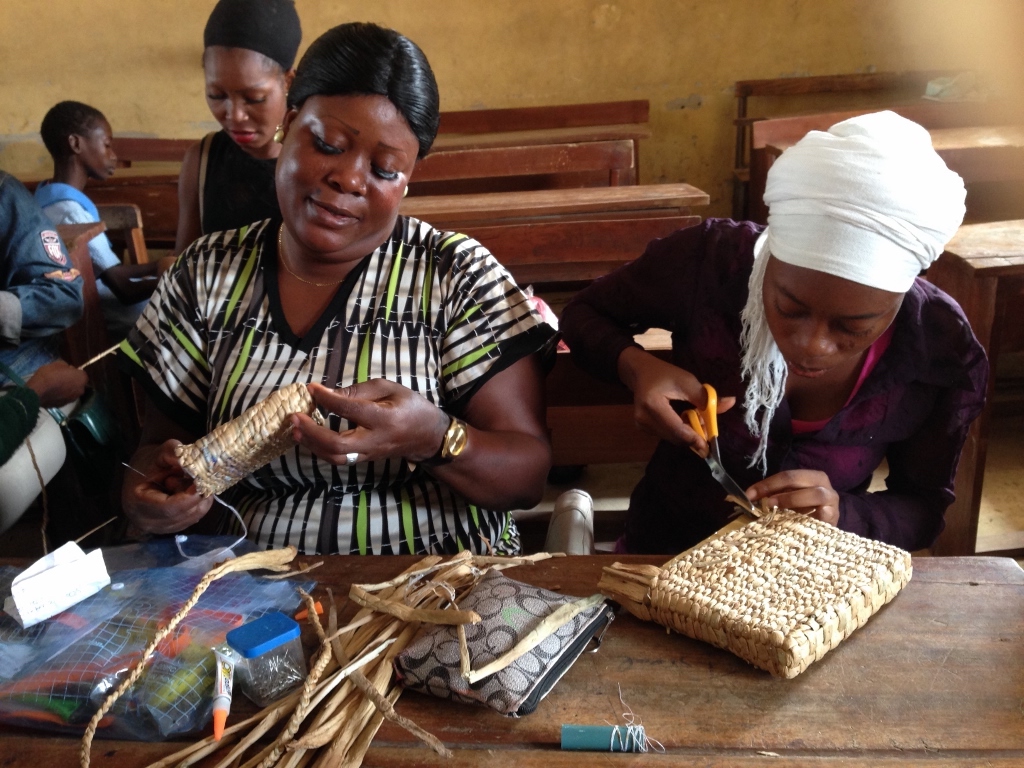
Could you tell us about MitiMeth and how your social business works?
MitiMeth creates handcrafted products from natural fibers that would otherwise be considered waste or environmental menaces. These natural fibers include aquatic weeds (water hyacinth, typha grass) and agricultural waste forms (banana bark, maize husks). We upcycle and add value to recovered waste (plants and non-timber resources) by harvesting and transforming it into furniture and home accents, baskets, lamps, kitchen and dining ware, stationery, and branded souvenir items. Everything is made locally, but designed with global appeal. MitiMeth also runs training programs that teach local community members how to find alternative income-generating opportunities by using the resources around them. These workshops are financed by social investors who want to see a positive return in the lives of the trainees.
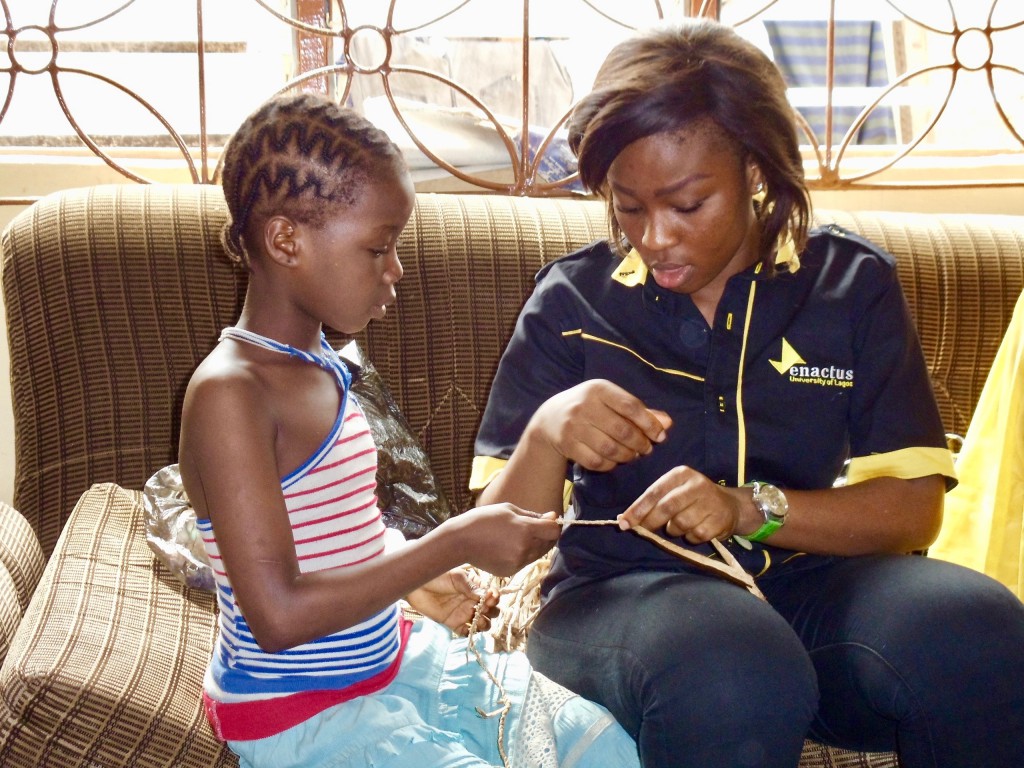
What are the backgrounds of the participants? And how does the training positively impact their lives?
By partnering with corporations and non-governmental organizations, MitiMeth has created productive artisan communities and has already trained over 250 women, young people, and farmers from more than a dozen communities in areas that suffer from water hyacinth or cattail infestation. Many participants are students or unemployed people seeking opportunities to earn an income. Other participants already have work in their immediate environment, e.g., fishing, trading, or dredging, and want to enhance their current income.
« The positive effects are immediate as the participants become more enlightened about the potential of the water hyacinth resources in their environment »
The positive effects are immediate as the participants become more enlightened about the potential of the water hyacinth resources in their environment, which have gone unutilized for years. Next comes the participants’ sense of accomplishment when they showcase their handmade products after the training. Finally, the participants create valuable products that people are happy to buy. We look for ways to distribute the participants’ products via our platforms and we also encourage participants to look for selling opportunities in their immediate environs.
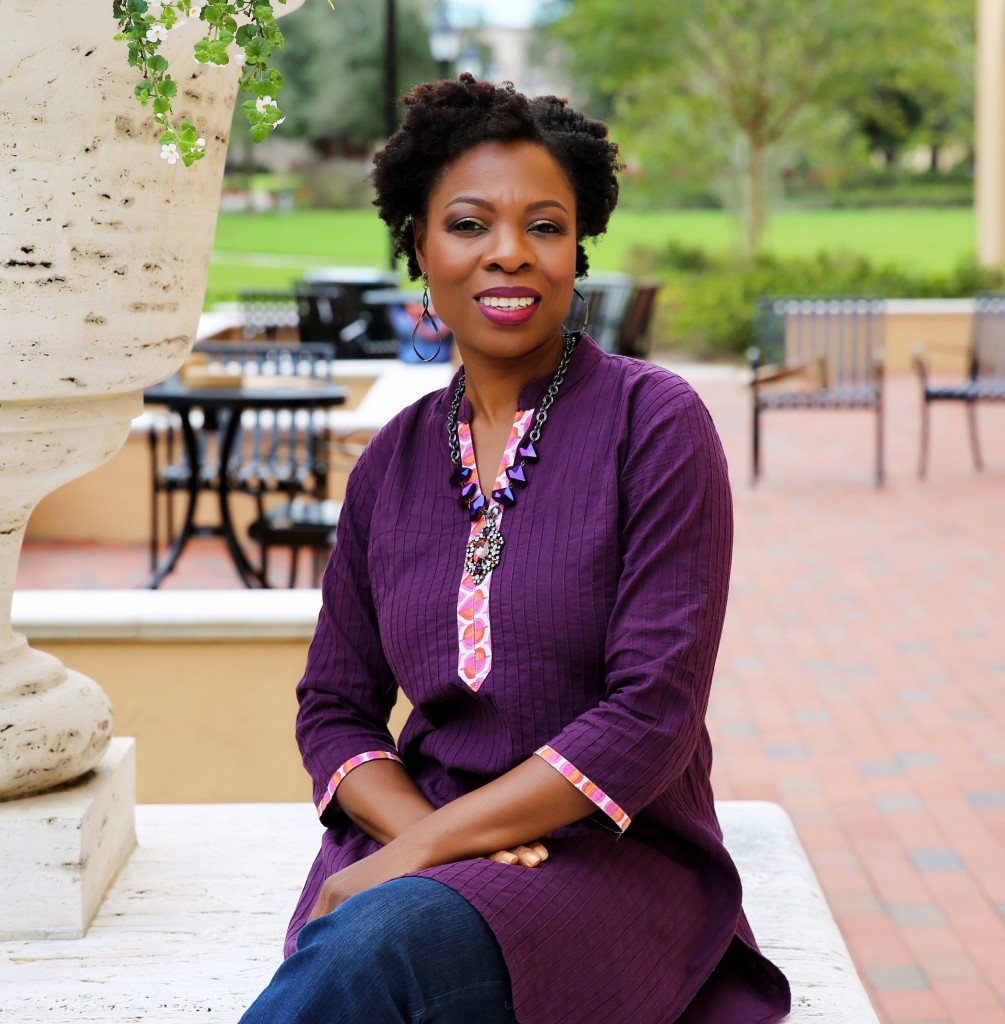
Achenyo Idachaba, Founder of MitiMeth
How do you measure the social, economic, and environmental impacts of your work with MitiMeth?
We track economic progress in terms of sales of water hyacinth products and the amount of water hyacinth we have utilized in the production process. We also have indirect employee artisans — a good number are in the rural communities — transforming water hyacinth into intermediary products or final products.
« When I started MitiMeth I had a strong idea, but it took me years to find an artisan with the skilled expertise to do the hands-on transformation. »
What are the greatest challenges you’ve faced in your work with MitiMeth?
We’ve faced a few challenges: limited local expertise, loss of skilled artisans, limited local crafts technical support, lack of publicly available information specific to local artisanal crafts in Nigeria, and market access. We want to find distribution platforms that offer consistent uptake arrangements, to help guarantee sustainable livelihoods for our producing artisans. We aren’t there yet! As for the loss of skilled artisans, I don’t mean mere attrition over time, but a sharper kind of loss. When I started MitiMeth I had a strong idea, but it took me years to find an artisan with the skilled expertise to do the hands-on transformation. I was very fortunate to find an exceptional artisan, highly detail-oriented, and I hired him to head my young and fledgling workshop team. Sounds great, right? But we lost him a little over a year later – he passed away before he was able to transfer all of his knowledge. MitiMeth has survived, and we’re grateful for the methods we learned from him, which we continue to implement today. We lost him two and a half years ago, and I am yet to find an artisan with that kind of experience and attention to detail.
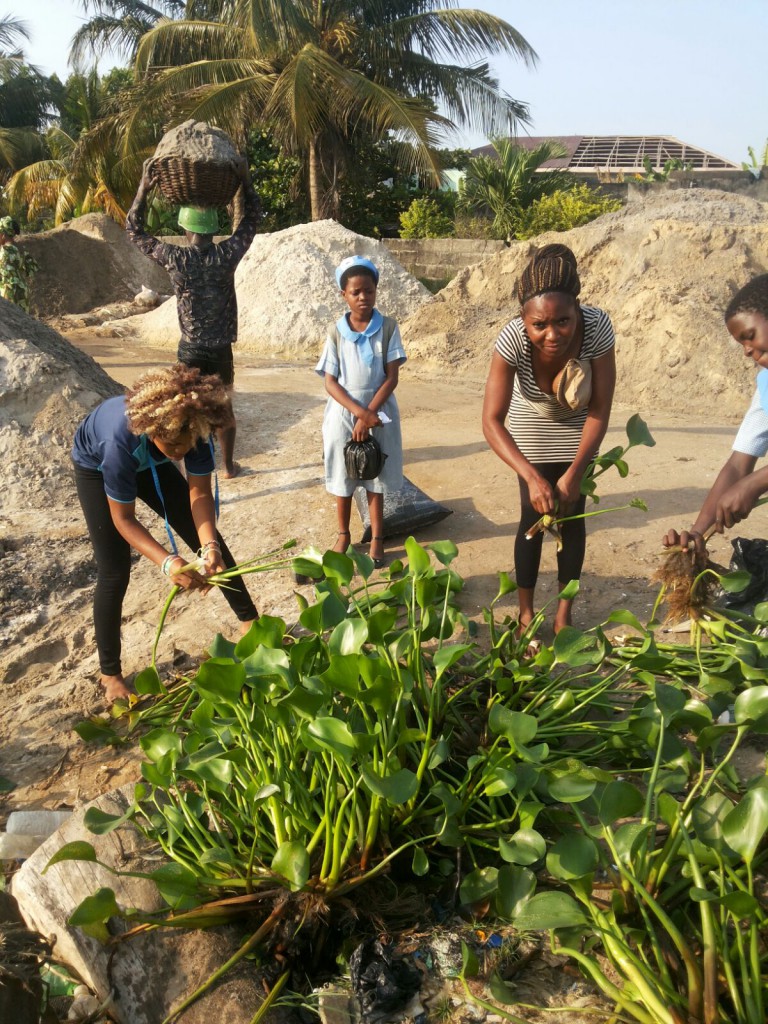
What are your longer-term aspirations for MitiMeth?
My long-term aspiration for MitiMeth is to become Nigeria’s #1 non-oil sector producer and exporter of artisanal crafts made from aquatic weeds and agro-waste. We aim to reach that position by 2020.
Based on your experience as a social entrepreneur, what do you consider to be some of the main challenges Nigerian women face when embarking on the path of entrepreneurship?
Lack of access to cheap capital from commercial banks is a challenge. Interest rates run in the high double digits, which is something I haven’t come to terms with. I absolutely refuse to mortgage MitiMeth’s future by accessing such expensive capital. On the flip side, I have been very fortunate to have won three business-plan competitions and one pitching event, each of which carried monetary awards that I have invested in the business to hire more people and improve resources.
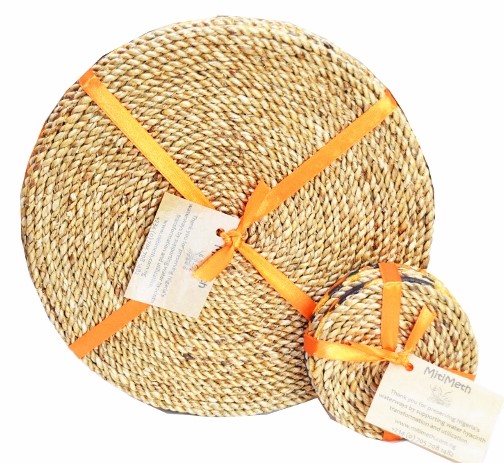
How can individuals support your work at MitiMeth?
Individuals can invest in communities by supporting our training workshops, by promoting or buying MitiMeth products, and by sharing the MitiMeth story. We are also on the lookout for collaborative partnerships with designers and makers.













